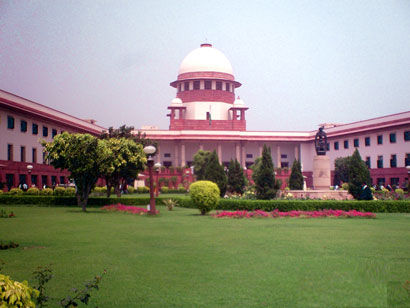SC verdict on National Judicial Appointments Commission surprises government

New Delhi: Expressing “surprise” over Supreme Court’s decision to strike down a new law to appoint judges to the higher judiciary, government today questioned the transparency of the old collegium system which has been revived with the verdict.
Law Minister D V Sadananda Gowda said the next course of action will be decided after consultations with Prime Minister Narendra Modi and Cabinet colleagues.
“We are surprised by the verdict of the Supreme Court,” Gowda told reporters in Bengaluru on the apex court striking down the Constitutional Amendment Act and an enabling law to establish the National Judicial Appointments Commission(NJAC) to recommend transfer of High Court judges and their elevation to the Supreme Court.
Telecom Minister Ravi Shankar Prasad and Attorney General Mukul Rohatgi questioned the transparency of the collegium system which the law sought to replace.
With the NJAC Act struck down, the appointments to the higher judiciary will be made by the collegium system which ended in April when the government notified the new law.
“The Supreme Court has said that from November 3 it will hear the issue of improving the collegium system. It shows that there was something wrong in the collegium system,” Prasad told reporters in Delhi.
Rohatgi expressed similar sentiments after the landmark verdict. “Appointments will continue to be made in an opaque system where all stakeholders will not have a voice. The collegium system is not found in the Constitution and according to me, the system is not appropriate,” he said.
“Whether collegium system will be changed or not is in the wisdom of the court. But if it needs to be improved, it means it wasn’t correct in the first place,” he said.
While Gowda and Prasad, a former Law Minister, said the government will come out with a structured response after going through the order, the AG ruled out the option of seeking review in the matter saying, “I don’t think it is a case for review at all as the verdict is detailed and runs into over a thousand pages.”
Gowda said he would decide on the future course of action after consulting the Prime Minister, his senior Cabinet colleagues and legal experts.
“The will of the people can be represented through the Parliament, through the legislature only, it cannot be brought to the notice of the whole world by some other means,” Gowda said.
Parliamentary Affairs Minister M Venkaiah Naidu said there was a unanimous support for the bills in the Lok Sabha and the Rajya Sabha during voting.
“20 state assemblies had ratified it…the principal author of the 1993 Supreme Court judgement (which led to the collegium system) (late) Justice J S Verma had also suggested a serious rethink on the collegium system and so had Justice V R Krishna Iyer,” Prasad said.
Naidu said the will of the people was brought before the Court, noting that the Lok Sabha and Rajya Sabha had supported the bill besides 20 state legislatures had also ratified the constitutional amendment.
“It is a legislation passed by Parliament and ratified by legislative assemblies of states after much discussion. The collective wisdom of Parliament has gone into it and the mood of the people is reflected in the Bill,” he said, adding that government will deliberate on the future course of action on the issue soon.









